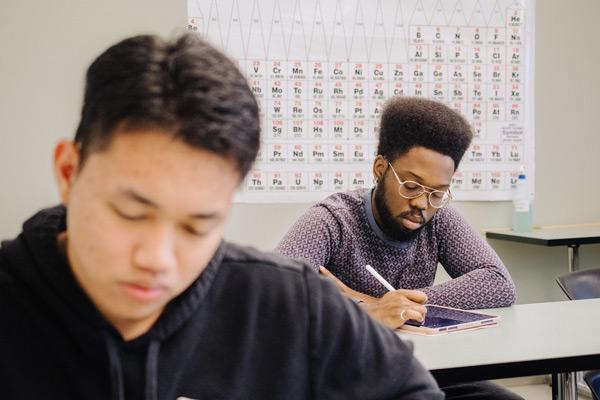

Associate in Engineering

STEM
Build your future—design, innovate, succeed.
What You'll Learn
The Associate in Engineering program is a two-year degree designed for students ready to apply their critical-thinking skills to the math, science, and general education classes needed to transfer into a Bachelor of Engineering program at a four-year institution. Students who choose this degree path already know that they want to pursue an advanced degree and a career in an engineering field.
Why Study This Program at CCCC?
Learn More About the Field of Engineering
Courses in the Associate in Engineering degree are designed to help students learn about the broad field of engineering and narrow down their specialization and career choices.
Get Help with Transfer
Faculty advisors are well-equipped to assist students in the Associate in Engineering degree identify and apply to transfer universities with top-quality engineering programs.
Smaller Math and Science Courses
Engineering degrees require advanced math and science courses. At CCCC, the student faculty ratio is 13-to-1. Faculty members get to know students personally, offer hands-on lab courses, and ensure the best possible learning environment.

More Helpful Links for This Program


Careers
Engineers are in high demand and employment opportunities are expected to grow in the next decade, according to the Bureau for Labor Statistics. There are several different engineering jobs that graduates can get after a two-year or four-year degree:
- Engineering technician
- Engineering technologist
- Engineer (civil, mechanical, industrial, material, and more!)
Program Contacts

We’re Here to Help
Want to talk to an advisor about the requirements or get more details on jobs in this industry?
Transfer Programs
Credits from select courses within the program may transfer to four-year colleges and universities on a case-by-case basis.
